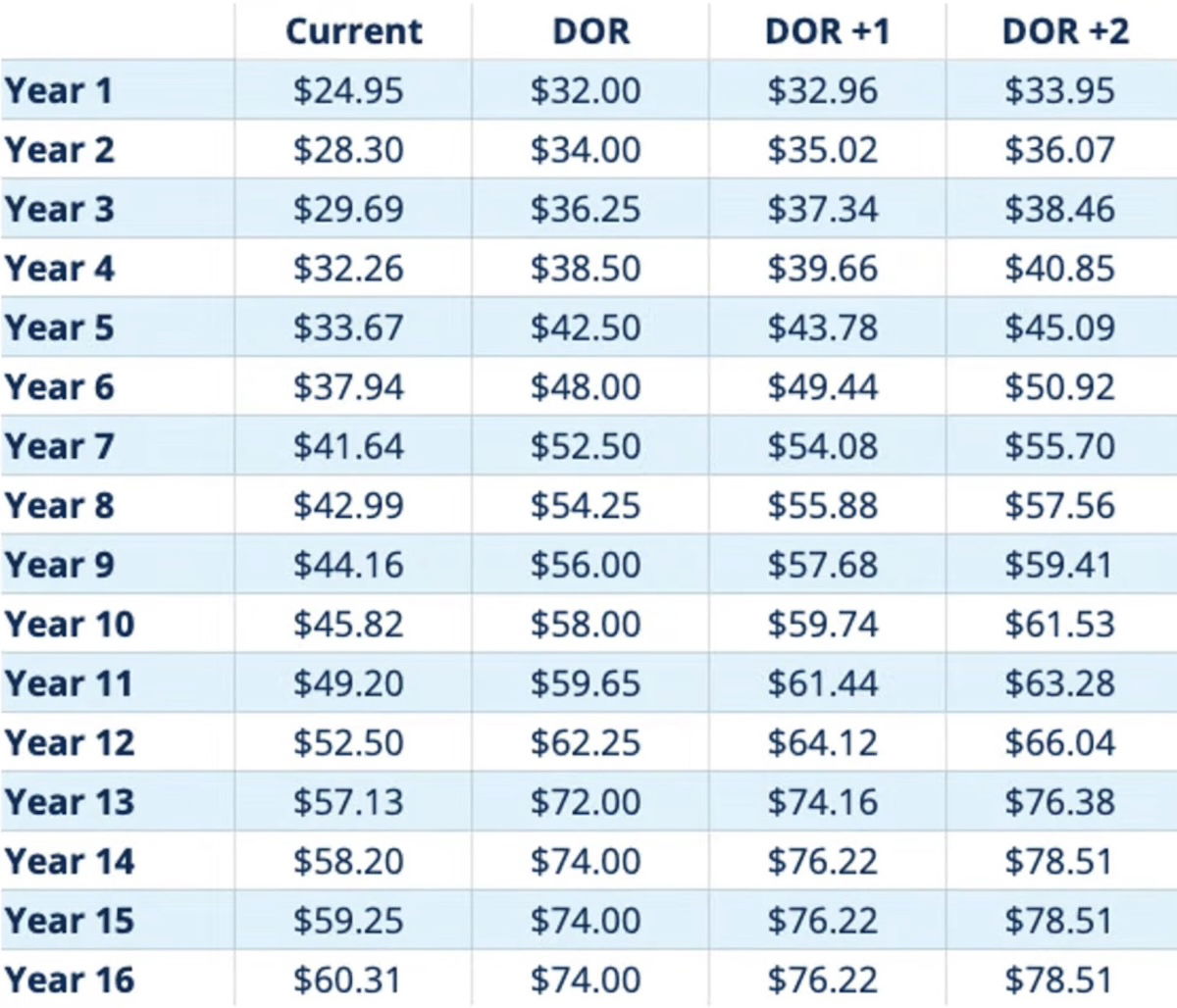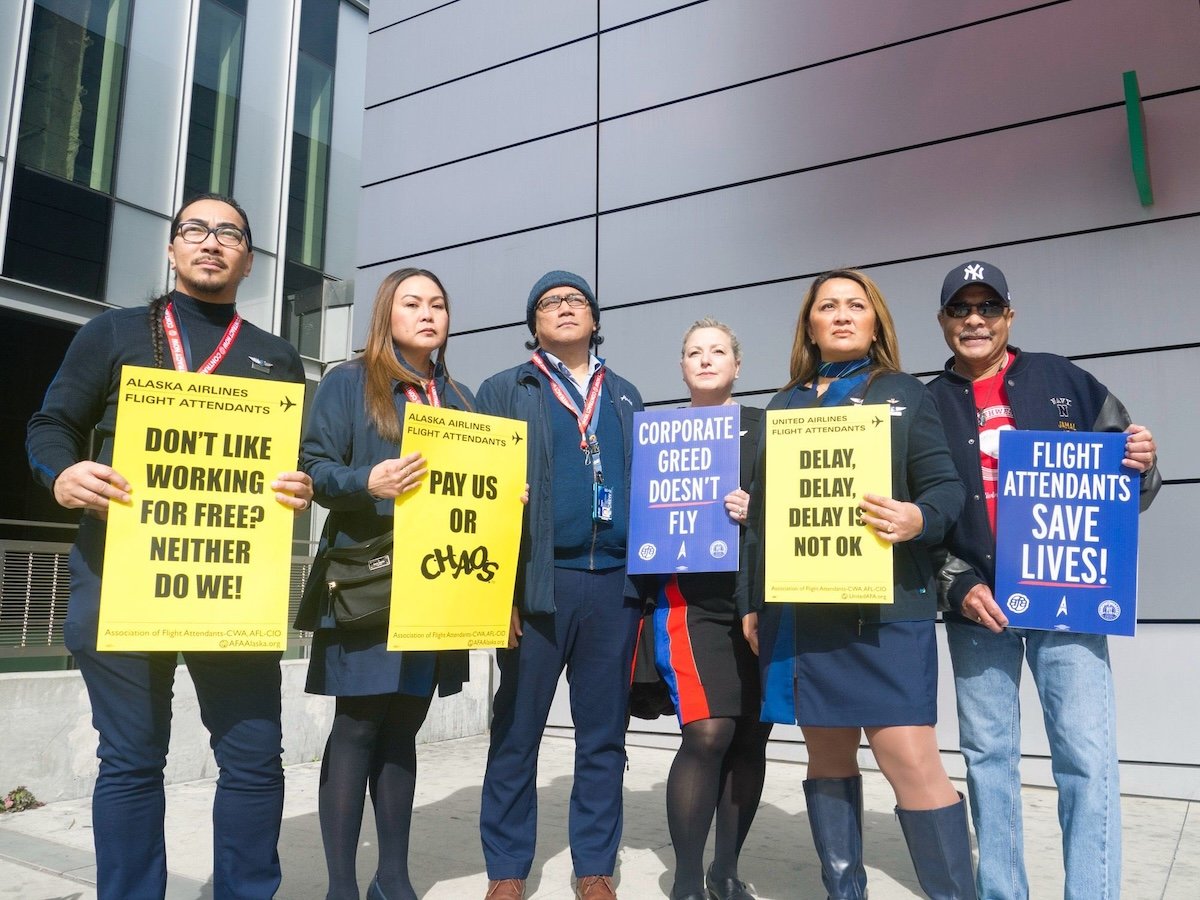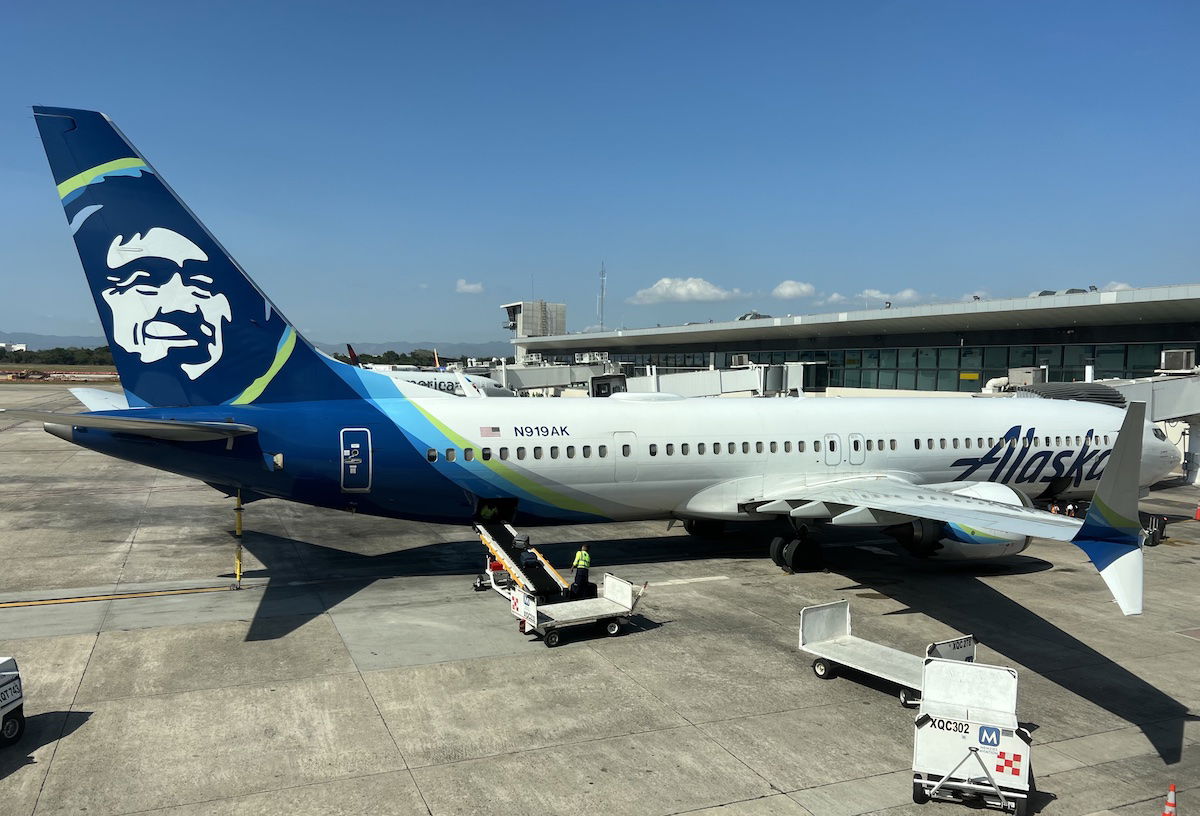For the past few years, we’ve seen flight attendants at most major US airlines negotiating new contracts. Prior to this, flight attendants largely didn’t have pay increases since before the pandemic, so they were understandably looking for big pay bumps, to reflect the inflation we’ve seen in recent years.
Up until now, flight attendants at Southwest and American have ratified new contracts. Delta flight attendants aren’t unionized, so they get proactive pay raises. United flight attendants are the least far along in negotiations, and are super frustrated.
There some great news at Alaska, as flight attendants have just ratified a new contract, which they started voting on roughly a month ago. For what it’s worth, this is the second contract they’ve voted on, as they rejected the first one. Let’s go over the details, starting with the basics of the contract that they rejected.
In this post:
The contract Alaska flight attendants voted against
For some background, in June 2024, the Association of Flight Attendants-CWA, which represents Alaska’s flight attendants, had reached a tentative agreement with Alaska management for a “record contract,” as the union described it.
The union stated that this tentative agreement had been reached with the help of the National Mediation Board (NMB). Negotiations took place in Washington, with AFA International President Sara Nelson and AFA General Counsel in attendance, along with Alaska Chief Operating Officer Constance von Muehlen.
Per the details of the proposed contract, flight attendants would receive an average pay raise of 32% in the long run. This would include an immediate hourly pay bump of 18%, plus 3% pay increases in the two subsequent years. Flight attendants would also receive boarding pay, plus retroactive pay going back as far as late 2022.
Below you can find the proposed Alaska flight attendant pay scale, showing the current pay, plus the pay after the first raise, second raise, and third raise.

Having a tentative contract at all was already big progress. Back in February 2024, Alaska flight attendants voted to authorize a strike, with 99.5% of participants voting in favor of a strike (and 93.5% of flight attendants participating in the vote).
Unfortunately for all involved, the actual membership wasn’t as enthusiastic about the new contract as the union was. In August 2024, it was revealed that the new contract was rejected — 92.4% of flight attendants participated in the vote, and 68% of votes were against the new contract.

Alaska flight attendants finally approve a new contract
Over five months after the previous contract was rejected, the Association of Flight Attendants-CWA returned to Alaska flight attendants with a new tentative contract. Over the past month, flight attendants have been voting on the contract, and there’s now a positive update.
The contract has been ratified, with 90.8% of eligible voters participating in the vote, and 95% of votes being in favor of the new contract. As you can tell, those are very different results than we saw last time around.
Why were flight attendants so enthusiastic this time around? When they were presented this tentative contract, here’s how the union described it, as it came with a pretty significant warning:
After a short but vigorous fight at the bargaining table, the Negotiating Committee (NC) is pleased to present a successor Tentative Agreement (TA2). You were very clear about specific disappointments of TA1 after it was voted down, and your NC listened closely and addressed many of those issues in TA2 bargaining.
Further, our federal mediator and the National Mediation Board have been direct in their communication to us that should TA2 not ratify, they would be unlikely to devote further resources to mediating a “TA3.” Management also indicated they will allocate their bargaining resources toward merger considerations and JCBA negotiations.
The choice before us is clear; your vote will either solidify the enhancements secured in TA2 or it will indicate your desire to retain our current contract without any improvements in pay and working conditions until the end of JCBA negotiations, which is likely to take years.
So yeah, the union basically told members to accept the new contract, or expect to not get a new contract at all. This latest contract is similar to the previous one, with some minor improvements. The biggest difference is around boarding pay, as those rates have been bumped. The new contract also provides increases in pay premiums.
I’m happy to see that this contract has been ratified. Flight attendants are getting some well deserved raises for their hard work, and it should hopefully also help with morale.
Alaska has always been a tricky airline when it comes to employee pay rates. Alaska flight attendants have argued that their bases are in some of the highest cost cities in the United States, which is true. However, historically Alaska hasn’t exactly had the best pay in the industry. The airline has paid much better than ultra low cost carriers, but not consistently to the same level as carriers like Southwest.
Alaska flight attendants obviously want industry leading pay, which I can’t fault them for — who doesn’t? But that’s not what the airline was historically going for.

Bottom line
Alaska flight attendants have just ratified a new contract, which they’ve been voting on for the past month. The support for this was overwhelming, with 95% of participants voting in favor of ratifying the contract. That’s quite a change from the contract that they rejected in August 2024.
The improvements here over the previous contract are ultimately incremental. So I suspect what caused the widespread support for this contract was the warning about this probably being the last shot they’d have at a better deal.
What do you make of Alaska flight attendants ratifying a new contract?





What in hell are Alaska paying big bucks to a union for, if it will not negotiate for them a third time???
FAs are underpaid, and I'm glad to see an increase in their wages. Do I want to pay more in airfare? No, of course not, but I will if it means that FAs finally get a boost in pay.
Unsung factor is AS has longer avg stage length than other carriers (among domestic flights), which effectively boosts pay because your “workday” is longer. Tons of Hawaii, Alaska-L48 and transcon in there, much more appealing than flying HOU-DAL-OKC or ATL-MCO back and forth.
yes, AS FAs might finish their day faster due to longer stage lengths but the pay is not necessarily higher.
If anything, boarding pay is less valuable to FAs and less costly to AS as a result of the longer stage lengths.
It’s not about finishing your day faster, it’s about what % of your day you are on the clock. If you’re constantly on the ground turning between cities (not boarding time) you lose out
well, yes, uncompensated time is lost.... but that is part of the nature of AS' network and undoubtedly drives bidding patterns and perhaps even how FA candidates think about AS vs. other carriers.
Boarding pay is meant to compensate for that for carriers that have alot of shorter haul domestic flights- esp. AA and DL.
but it doesn't change that AA and DL have far more strength in lower cost cities than lower cost...
well, yes, uncompensated time is lost.... but that is part of the nature of AS' network and undoubtedly drives bidding patterns and perhaps even how FA candidates think about AS vs. other carriers.
Boarding pay is meant to compensate for that for carriers that have alot of shorter haul domestic flights- esp. AA and DL.
but it doesn't change that AA and DL have far more strength in lower cost cities than lower cost hubs so touting the economic benefits of longer flights while not accounting for the cost of living in EVERY hub as well as the percentage of commuters makes your case unprovable.
take the win but, at the end of the day, there isn't enough data to be able to argue how one carrier's FAs are so much better than another when both have obtained post covid raises.
it is FAs for carriers like UA that are the ones that are being left out. Presumably they will eventually get big retro although the time value of money that the company has been able to not pay its FAs for years will never be recovered.
I’m just glad the dumb lanyards are going away. Your labor disputes should not be my problem. Could you imagine in any other work setting protesting your pay on the job, especially in a customer facing role?
The pic with the photo cracks me up. “Save lives” okay go on sky waitress.
I bet you're a real pleasant passenger to deal with.
I am. Super nice and respectful to all FA’s, even the rude ones. Just because I disagree with someone, even harshly, doesn’t mean I’m unpleasant with them.
"Sky waitresses"? You may believe you're not being "unpleasant" with them, but you certainly are disrespectful...
and this is just a step in the process of getting a joint contract w/ HA. This sets the ground floor which is important.
Good for AS FAs
and it highlights the higher costs AS will pay to bring its FAs closer to global pay and to integrate HA.
Looks like Alaska flight attendant negotiated to match Delta, United, and American anytime they reach new pay increases. Delta flight attendants might start looking to a union more and more with the latest email from Delta management scolding them about calling off, a lack of a good sick policy and now making less than American :)
are you kidding?
Ben calls it proactive raises that DL FAs got but it was DL mgmt that launched the whole massive pay raises for ALL of its labor post-covid.
DL started with its unionized pilots by getting the first of the big 4 pilot contracts over the line and then followed w/ its non-contract employees.
Anyone that thinks a union will help DL's non-union employees started happy hour too early and w/ too many double shots.
It looks like Alaska will be the new leader in terms of pay for their flight attendants, duty hours are scheduled at around 10 1/2 hours, higher profit sharing, and a better sick policy. It’s a clear clap back at Delta and their lies they are emailing Delta flight attendants about being the highest paid and treated the best.
It appears AFA Alaska is actually going to be industry leading in every way. I look...
It looks like Alaska will be the new leader in terms of pay for their flight attendants, duty hours are scheduled at around 10 1/2 hours, higher profit sharing, and a better sick policy. It’s a clear clap back at Delta and their lies they are emailing Delta flight attendants about being the highest paid and treated the best.
It appears AFA Alaska is actually going to be industry leading in every way. I look forward to see what they do with Seattle and the expansion they have planned :)
You clearly missed the part about AS hubs being much higher cost. Because they are.
Good for AS.
Getting a JCBA and delivering high quality service on old 332s is what AS FAs should be concerned about and not childish chest beating over advantages which only exist in your imagination
Oh honey don’t get mad because there is a new leader in town in terms of pay and actual work rules.
Does Delta not have bases in JFK, LAX, BOS, SFO and HNL? You could make the argument of base vs hub but it’s meaningless because regardless flight attendants are based and live there. LOL you don’t have a leg to stand on now Timothy.
ryan,
put your tiny little tool back in your undies, take the win you got, and quit acting like you gained some phenomenal win.
as Ben noted, there wasn't much added to the contract that was rejected before except some boarding pay enhances - which DL brought to the table if you want to thank anyone.
the union TOLD you to accept this because you wouldn't do any better.
TAKE. THE. WIN. as small or large as it is in your tiny head.
and
SHUT. YOUR. MOUTH.
You live in your own delusional world but it’s always funny to read you grasping for straws.
Delta is NO LONGER industry leading in pay and we all know they don’t have work rules lmao. You can worship Delta all you want but Alaska’s union made them the new industry leader overall not Delta. Don’t get too but hurt about it Timothy.
you can't grasp that when cost of living is considered, AA and DL FAs very likely DO make more money given that both have substantial numbers of employees in the south.
Nobody is worshiping anything.
I am about facts while you are more interested in trying to turn your pay raise into a brag against someone else.
Why, other than you are sucking up to union, aren't you ragging on the AFA at UA for their inability to get anywhere close to what AA, AS, DL or WN have?
Alaska flight attendants gets paid in TFP like Southwest so this pay is competitive with AA and DL once it’s converted to hourly.
Furthermore, they just received record profit sharing(higher than Delta) and they are getting retro pay. Alaska flight attendants are winning :)